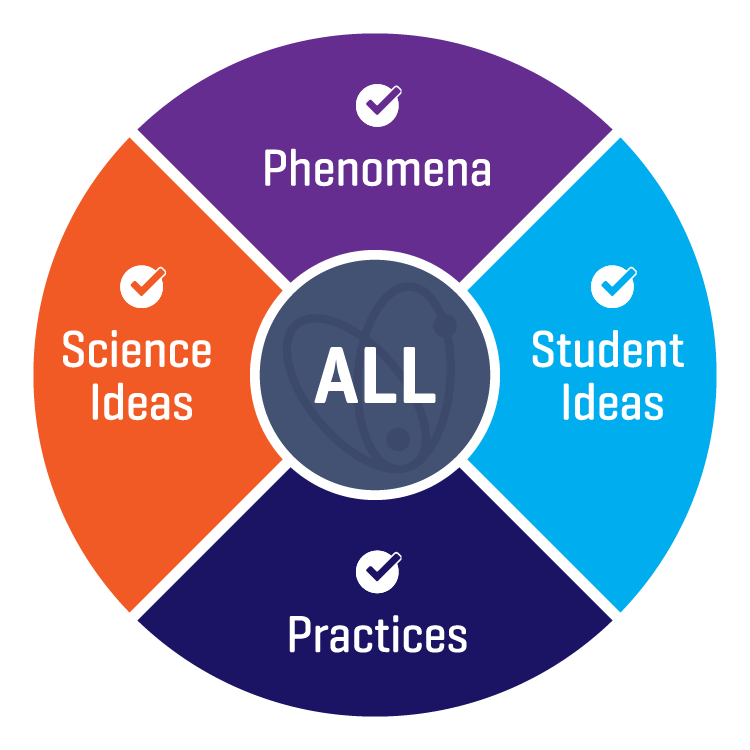NSTA Sensemaking Professional Learning Packages
Empower educators. Transform instruction. Engage all learners.
NSTA’s professional learning offerings support the shift from traditional, content-driven teaching to phenomenon-based, three-dimensional science instruction. Whether you're adopting high-quality instructional materials (HQIM) or designing your own, our research-based workshops are tailored to help educators build capacity and implement the vision of the NGSS and A Framework for K–12 Science Education.
What Is Sensemaking?
Sensemaking happens when students actively engage in science and engineering practices to investigate phenomena, ask questions, and construct explanations. It's not about memorizing facts—it's about making meaning of the world.
Our workshops help educators implement this approach in real classrooms with practical tools, classroom-ready routines, and immersive experiences that model what 3D teaching looks like.

Sensemaking Professional Learning Pathways
NSTA’s Sensemaking Packages provide a scaffolded series of research-based workshops—from building foundational understanding to advanced implementation and coaching. Each experience is tailored to your district’s grade levels, curriculum priorities, and instructional goals. Whether you're just beginning or scaling high-quality science instruction, our flexible professional learning helps teachers, leaders, and administrators bring three-dimensional teaching to life in any classroom setting.
Ongoing Support
Sustain progress and build long-term capacity with flexible support services tailored to your district’s evolving needs. These options can be bundled with professional learning packages or used individually to extend impact over time.
Why Choose NSTA for Professional Learning?
As a trusted leader in science education for over 80 years, NSTA has a long-standing reputation for delivering high-quality, research-based professional learning experiences that empower educators to implement effective science instruction. As a certified OpenSciEd Professional Learning provider, NSTA leverages its decades of expertise in professional learning to support the successful implementation of high-quality instructional materials.
Partnering with NSTA gives you:
- Access to a national network of science education expertise.
- Evidence-based instructional strategies aligned with NGSS.
- Classroom-ready tools to enhance teaching and learning.
- Ongoing support to sustain long-term professional growth.
- Professional learning that aligns with Science Professional Learning Standards

Let’s Talk!
Want to learn more about how these offerings can support your school or district? Fill out the form below to connect with our team.


